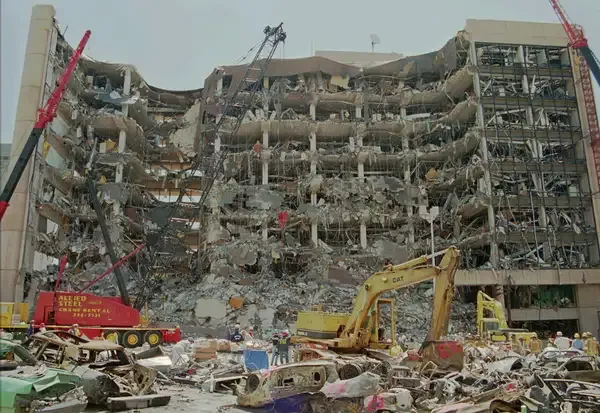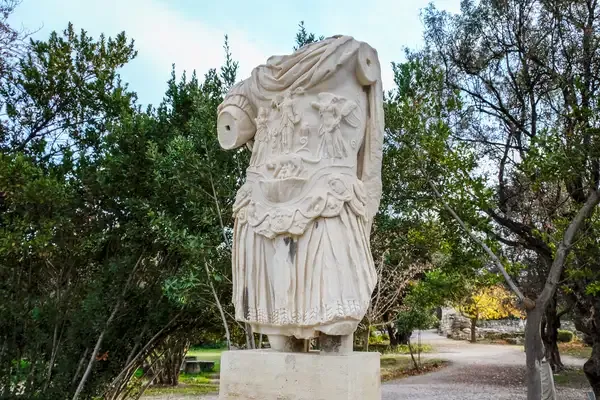20th Anniversary of the Oklahoma City Bombing
The 20th Anniversary of the Oklahoma City Bombing commemorates the tragic event that occurred on April 19, 1995, when a truck bomb exploded outside the Alfred P. Murrah Federal Building, killing 168 people. The anniversary serves as a solemn reminder of the lives lost and the resilience of survivors and their families. It is marked by memorial services and reflections on the impact of domestic terrorism, highlighting the importance of community strength and the ongoing pursuit of peace and healing.

Understanding the Impact of the Oklahoma City Bombing
The Oklahoma City Bombing, which occurred on April 19, 1995, remains one of the deadliest domestic terrorist attacks in U.S. history. As we reflect on the ''20th anniversary'' of this tragic event, it is essential to recognize not only the lives lost but also the lasting impact it has had on national security and public policy. The bombing claimed 168 lives and injured over 600 individuals, leaving a profound scar on the community of Oklahoma City and the nation as a whole.
Key Events of the Oklahoma City Bombing
On that fateful day, a truck bomb detonated outside the Alfred P. Murrah Federal Building, leading to extensive damage and destruction. Below is a table summarizing the key events surrounding the bombing:
| Date | Event |
|---|---|
| April 19, 1995 | Oklahoma City Bombing occurs at 9:02 AM. |
| April 20, 1995 | Search and rescue efforts begin. |
| April 21, 1995 | Federal agencies begin investigation. |
| April 24, 1995 | Timothy McVeigh is arrested. |
| June 1997 | McVeigh is convicted and sentenced to death. |
| June 11, 2001 | Timothy McVeigh is executed. |
The Aftermath: Legal and Policy Reforms
The Oklahoma City Bombing served as a catalyst for significant ''legal and policy reforms'' aimed at enhancing national security. In the wake of this tragedy, the U.S. government enacted several critical measures, including:
- Antiterrorism and Effective Death Penalty Act of 1996: This legislation aimed to deter terrorism by increasing penalties for terrorist crimes and streamlining the process for federal law enforcement agencies to handle terrorist threats.
- Creation of the Department of Homeland Security: Established in 2003, this agency was designed to coordinate national efforts to prevent terrorist attacks and respond to emergencies.
- Enhanced Security Protocols: Federal buildings across the nation implemented stricter security measures, including increased surveillance, access control, and emergency response plans.
Remembering the Victims
Each year, on April 19, memorial services are held to honor the victims of the Oklahoma City Bombing. The ''Oklahoma City National Memorial'' serves as a poignant reminder of the lives lost and the resilience of the community. The memorial features 168 empty chairs, representing each victim, and a reflecting pool that invites visitors to contemplate the impact of violence and the importance of peace.
Educational Initiatives and Community Resilience
The anniversary also provides an opportunity to engage in ''educational initiatives'' aimed at preventing future acts of violence. Schools, community organizations, and local governments collaborate to provide resources and programs that promote understanding, tolerance, and resilience. These efforts are vital for fostering a sense of community and ensuring that the lessons learned from the Oklahoma City Bombing are not forgotten.
The Role of Media and Social Awareness
In today's digital age, the role of media in shaping public perception of terrorism and violence cannot be overstated. As discussions around the Oklahoma City Bombing resurface, it is essential to approach them with sensitivity and awareness. The ''media's portrayal'' of such events can significantly influence societal attitudes and responses to terrorism. Educational campaigns and social media outreach play a crucial role in raising awareness and promoting dialogue about the underlying issues that contribute to domestic terrorism.
Conclusion: A Call to Action
As we commemorate the ''20th anniversary'' of the Oklahoma City Bombing, it is a time for reflection, remembrance, and action. The scars of this tragic event remind us of the importance of unity and vigilance in the face of hate and violence. By promoting education, understanding, and community resilience, we can honor the victims and work towards a future where such tragedies are no longer part of our reality. Let us stand together, remembering the past while actively shaping a safer, more inclusive society for generations to come.
In conclusion, the legacy of the Oklahoma City Bombing continues to influence policy, community efforts, and national discussions on terrorism. It serves as a reminder of the fragility of peace and the strength of the human spirit in overcoming adversity.












